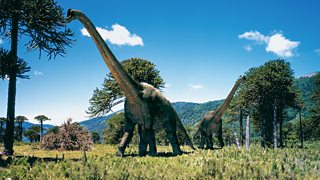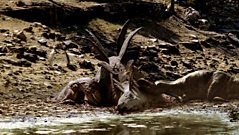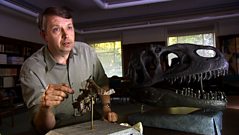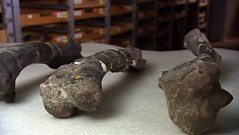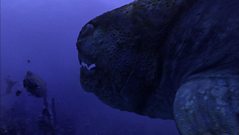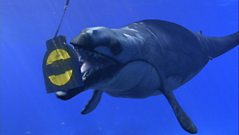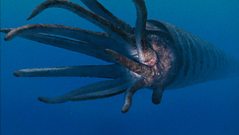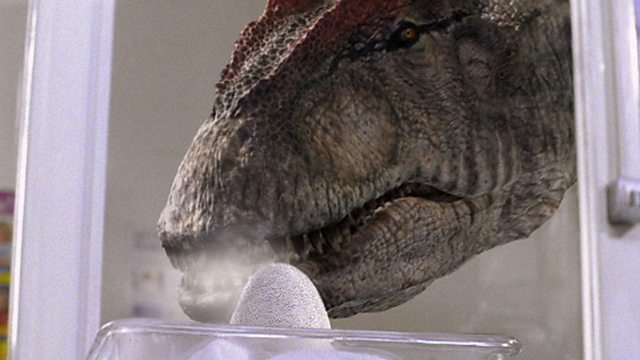
Allosaurus eggs
Egg fossils reveal how Jurassic carnivores raised their young.
Like every living thing, these monsters started off small and delicate. Despite this science can still tell us something about how Al probably started life. We are very familiar with how life begins for humans, but you might be surprised to learn how a Jurassic carnivore raises its babies. Evidence for this comes from remarkable fossils found on the Atlantic coast of Portugal. Dr Octavio Mateus Geal has found small egg shells from a dinosaur in 1993. They've found more than 100 eggs, which makes it one of the biggest nests in the world. But more significantly they found something that could tell them who these eggs belonged to: the most rare and sought after fossils of all - tiny preserved bones of baby dinosaurs, still curled up inside their shell. Octavio can tell exactly which kind of dinosaur it is - a meat-eater. And if there were eggs, there must have been a nest. Bizarrely there is information about this in the fossilised eggshells themselves. Under the microscope, scientists can identify holes in the shell. Their large size allows maximum air for the embryo to breathe, which tells them these eggs were buried, packed together, in an underground nest. We know this because there are animals alive today who do the same thing: the crocodiles. This is not surprising, because crocodiles and alligators are one of the dinosaurs' closest living relatives. And with scaly skin and a mouthful of teeth, it's easy to see the family resemblance. But carnivorous dinosaurs have an even closer group of relatives who share some of their other traits - birds. Standing on two legs, Big Al's skeleton was actually more like a bird than a crocodile, but in practise he was actually a strange mix of the two. So after Al hatched did he feed himself like a crocodile or wait to be fed like a bird? Evidence at the site in Portugal provided a clue: baby dinosaur teeth. These teeth tell us that babies can chew and eat soft meat from birth. Being born with teeth would have made all the difference. Although the teeth were too small to tear off chunks from his mother's meals, they were probably perfect for catching insects. Just like baby crocodiles it seems that Al was able to fend for himself from an early age.
Duration:
This clip is from
Featured in...
![]()
Βι¶ΉΤΌΕΔ Nature
Be captivated, informed and inspired by the world's wildlife.
More clips from Big Al Uncovered
-
![]()
Dinosaur death trap
Duration: 01:45
-
![]()
Smelling good
Duration: 03:08
-
![]()
Growing up fast
Duration: 01:08
